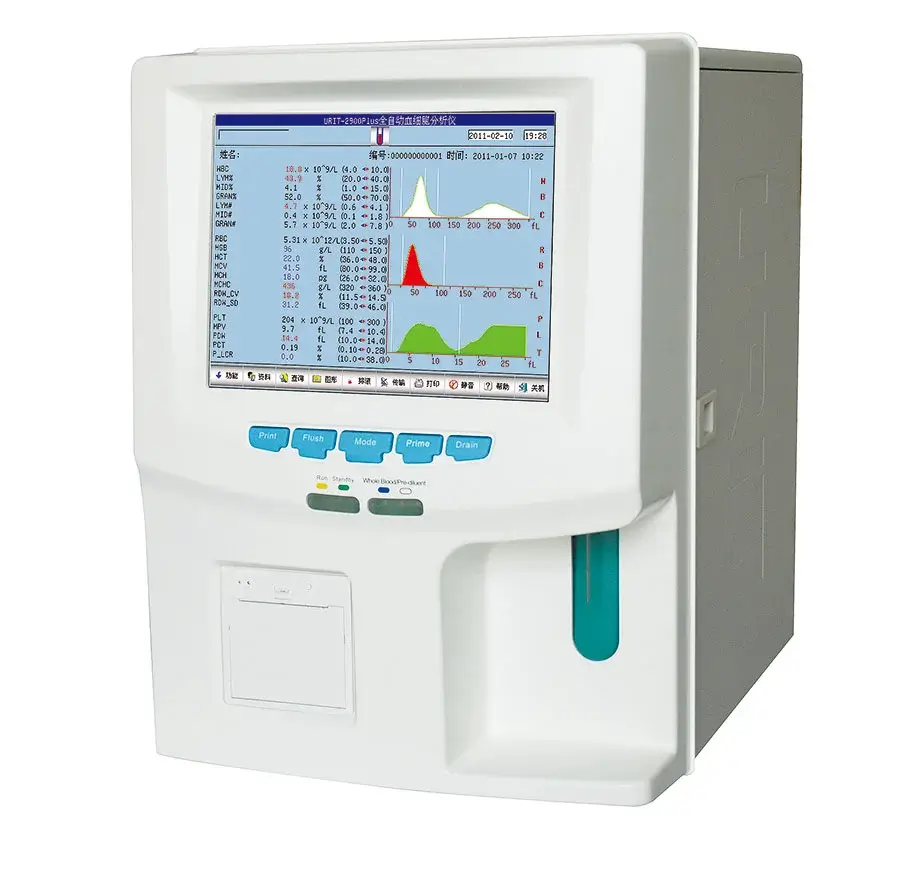A hematology analyzer is a medical laboratory instrument used to perform automated blood tests that provide information about the cellular components of blood. These components include red blood cells, white blood cells, and platelets. Hematology analyzers play a crucial role in diagnosing and monitoring various medical conditions, such as anemia, infections, leukemia, and other blood disorders.
Here are some key aspects of hematology analyzers:
Functionality: Hematology analyzers use various techniques, such as impedance, flow cytometry, and spectrophotometry, to analyze blood samples and determine various parameters related to blood cells.
Parameters Measured: A typical hematology analyzer provides a Complete Blood Count (CBC), which includes measurements of red blood cell count, hemoglobin concentration, hematocrit (the proportion of blood composed of red blood cells), white blood cell count, platelet count, mean corpuscular volume (average volume of red blood cells), mean corpuscular hemoglobin (average amount of hemoglobin per red blood cell), and mean corpuscular hemoglobin concentration (average concentration of hemoglobin in red blood cells).
Hematology Analyzer Model- URIT-2900 Plus Brand - URIT: Hematology analyzer are medical devices used in clinical laboratories to perform automated blood tests, providing information about the cellular components of blood,…

